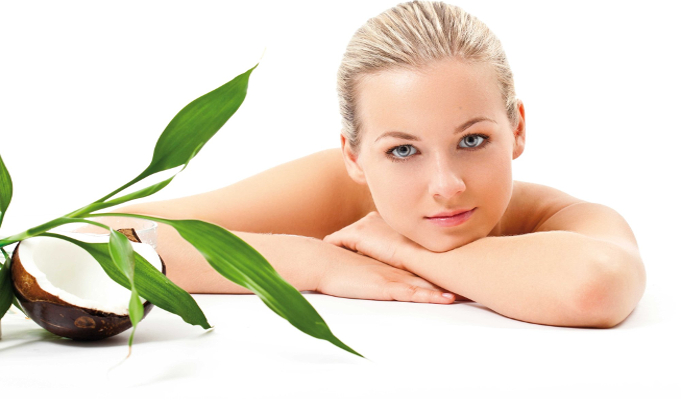Euromonitor International’s recent research states that skin care is the key revenue driver in beauty, and by 2019, India will emerge as a primary growth market. Within skin care, there is a growing trend that is veering towards natural and organic products infused with ‘pure’ ingredients. With this as a context, Salon India analyses the workings of the natural and organic skin care business skin care trends.
Over the past couple of years numerous natural skin care brands have emerged to dot the beautyscape in a bid to lure consumers, who are aware and informed, and avidly searching for ‘pure’ ingredients, a label and a certification by an authentic quality control body. Quite a tall order as in the absence of certifications, claims of all kinds are made unabashedly. Despite such and more challenges, a few brands have made the cut and passed judgement to become a preferred choice of many.
The terms ‘organic’ and ‘natural’ are often used interchangeably despite their differences and can be confusing for the consumer. For the uninitiated, a product is considered ‘natural’ when it contains ingredients that are sourced from nature and not created synthetically. Also they do not include ingredients, such as petrochemicals, parabens, sodium lauryl and laureth sulfates, phthalates, synthetic dyes and synthetic colours and fragrances. The main distinction between natural and organic beauty products is that organic ingredients must pass more rigorous standards of purity, as compared to natural products. An ‘organic’ ingredient must be derived without the use of synthetic pesticides, petroleum fertilizers or sewage sludge fertilizers, and not be a genetically modified organism (GMO.)
Market size captured
In India, industry estimates reveal that the organic skin care market is likely to grow two-fold in the next five years and cross the mark of Rs 1,000 crore by 2020. Further, a survey carried out by Euromonitor International reveals that over half of Indian consumers reported ‘natural or organic’ features are known to influence their hair and skin care purchase decisions. About 71 per cent of consumers surveyed said that they would pick up a face cream or lotion provided it claimed to be ‘natural’, 38 per cent said they would buy a shampoo or hair oil, if it was made with ‘botanical’ ingredients.
Globally, too, there is a keen interest being generated in natural and organic products. A report by Mintel shares that interest in natural formulations presents an opportunity for saturated markets, such as that of USA, as trusted and easily recognisable ingredients alleviate concerns about chemicals, pollution and unfamiliar ingredients.
Trend and Drivers for Growth
Of late, there has been a growing awareness regarding the benefits of organic products over its synthetic counterparts. As highlighted by Mintel’s Global Beauty and Personal Care Trend Gastronomia, consumers also view lifestyle as an important contributor in their skin’s appearance, with many agreeing factors, such as hydration (44 per cent) and diet (36 per cent) impact the skin’s appearance more than using skin care products (26 per cent). Another 38 per cent agree that stress impacts the appearance of their skin, and as such, 30 per cent of consumers look for anti-ageing products with anti-stress claims. Interest in natural beauty and personal care ingredients is on the rise, and natural product trends paired with the strong association between diet and skin is driving the emergence of food-based and probiotic facial skin care. Indeed, consumers are most likely to be using or interested in using products with vitamin C (85 percent), fruit-based ingredients (78 per cent), oatmeal (78 per cent) and honey (76 per cent). Further supporting this trend, 72 per cent of consumers use or are interested in using products that include probiotics.
Reports further state that rising R&D expenditure by key companies to use improved animal and plant extracts for organic products, is expected to propel market growth. E-commerce is one of the main factors that is promoting market growth on account of its wide range of products. The online sector is a key source used by consumers to access products which may not be available in malls and retail stores, primarily in developing countries. This trend is expected to propel product demand. Stringent regulations promoting natural product use will also fuel growth. Technological innovations involving oligopeptides, which are used to increase product shelf life and efficiency, is expected to have a positive impact on the sector.
1. BRAND IN BUSINESS – Shahnaz Husain

Spokesperson: Shahnaz Husain, Founder, Chairperson and Managing Director, Shahnaz Husain Group of Companies.
Philosophy of the brand: “The Shahnaz Husain Brand is internationally renowned for Ayurvedic beauty care, blending ancient traditions with scientific techniques. Based on the principle of ‘Natural Care and Cure’, the Shahnaz Husain formulations comprise of herbs, flowers and fruit extracts, essential oils, and precious minerals and gems. It has received prestigious international awards for Quality Excellence.”
Inspiration to launch the brand: “While training in London in cosmetology, I came across instances of skin damage caused by chemical treatments. I wanted to find a natural alternative that was safe and without risk. From my family, I had inherited faith in natural healing and my study of Ayurveda strengthened it further. I was convinced that it could offer the ideal answers to modern cosmetic care.”
USP: “‘Shahnaz Husain’ is not a faceless brand name or corporation. Everyone knows that the person behind the brand name is herself trained in cosmetology and cosmetic therapy, that it is a symbol of my vision of herbal beauty care. The brand name is associated with unique integrated system of salon chain and product excellence, which rely on each other. The products have been clinically tested in actual user-conditions.”
Competition from non-natural brands: “In India, faith in a natural system, such as Ayurveda, has existed for centuries. It is part of our tradition, culture and heritage. Also, with the ‘back to nature’ trend sweeping through the world, it is herbal (natural) beauty care that is driving the growth of the beauty business. Consumers cannot be underestimated. They are very much aware of products, their ingredients and quality. They opt for natural products, not only in India, but worldwide. The Shahnaz Husain brand has established brand loyalty and brand identity on the strength of ‘Natural Beauty Care and Cure’, over the past four decades.”
Market share captured: “The Shahnaz Husain brand has captured 40 to 45 per cent of the market in the highest segment of Natural Ayurvedic Beauty Care.”
Consumer trends key for brand positioning: “Today’s Indian consumer is aware of quality and the ingredients in products and wants to exercise this knowledge by buying reputed brands known for their quality. Scientific techniques and modern beauty concepts have also influenced products, and there is a veritabel list of them available today – from specialised sunscreens and moisturisers, to cleansers, masks, serums, hair tonics, hair serums, and so on. Branding has become all important. One prominent trend has been the surge of men’s personal grooming. This includes salon care for men, as men’s salons have also mushroomed at a fast pace. With the recent trend towards fitness and youth, the age group range of customers has also become wider. Older people are demanding anti-ageing treatments. Very recently, a major thrust has been noticed towards spa treatments, with salons being converted into day spas, offering both salon and spa treatments.”
Marketing strategies: “My marketing strategies have been unique, to the extent that I did not enter the retail market till 1990. Our salons were the outlets for our products. Even at a time when businesses sustained on commercial advertising, I relied on ‘word of mouth’ publicity, believing that a satisfied client is the best advertisement. I have also extended my salons and other ventures on a unique franchise system, which has become a successful business model with tremendous international goodwill.”
Challenges faced: “Having adopted a totally new concept of herbal care and cure, I had to increase awareness of the healing powers of herbs and the dangers of chemical and synthetic ingredients. I overcame this hurdle did this with the help of print media. Very early in my career, I also made it a point to personally reply to letters seeking solutions for skin and hair problems. Four decades later, I still maintain this practice. My philosophy and faith in nature has not only influenced markets and minds, but has become an integral part of the brand image. I also had to overcome social and economic hurdles, but my family’s support and understanding helped me to overcome barriers and realise my dreams.
Entering the international market was the biggest challenge. India was not even represented at that time, but I attended International Beauty Congresses on my own steam, speaking on Ayurveda and trying to popularise Ayurvedic beauty care. I participated in the Festival of India in London in 1980 and was given a counter in the Perfumery Section of Selfridges. In the face of fierce competition, to stand up alone and sell India’s ancient civilisation in a jar was not easy. Since then, we have experienced the increasing demand for Indian Ayurvedic products across the globe.”
Future of natural and organic skin care: “In India, traditions co-exist with modern technological advances. Today, Ayurveda and natural, organic products have found a prominent place in modern cosmetic care. Synthetic preparations and chemical ingredients cause allergic and irritative reactions, as well as lead to build-up of toxins in the system. The safety factor cannot be ignored and makes herbs ideal for cosmetic care. Herbs also have powerful healing properties, with protective, preventive and corrective actions. Centuries of usage have also shown that natural ingredients are readily accepted and assimilated by the body. Today, we are looking at nature with enlightened eyes, because it is being supported by scientific research. We know that natural and organic products have an exciting future. As for Ayurveda, it is definitely the healing system of the future for attaining total wellbeing.”
View on Halal products in skin care: “We have showcased our products at Halal Beauty Expos in the Middle East and Malaysia. Our formulations do not contain any animal products, and we believe in protecting the environment and not disturbing it in any way through our manufacturing processes. We do not use animal products in our formulations and do not allow animal testing, either.”
2. BRAND IN BUSINESS – Aroma Magic
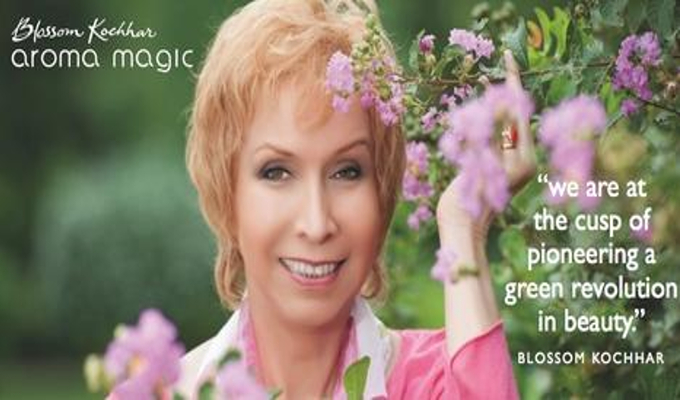
Spokesperson: Dr Blossom Kochhar, Founder and Chairperson, Aroma Magic.
Philosophy of the brand: “My childhood was spent on the coffee plantations with my very large family; everything we consumed was organically grown and taken from the earth. Over 30 years ago, I had searched for beauty solutions that had the same green, natural life giving philosophy that I grew up with, which is ‘What we apply should be as healing and effective as what we eat’, but, such products were difficult to find. At that point, a thought came up in my mind and I decided to create an honest, truthful and natural product on the core basis of Green Science, a holistic approach to beauty and inner healing through the harmony of mind, body and soul. I realised the need to have a scientific system backing it by stitching together the science and art of Aromatherapy and the modern day science of Terratherapy to create a pure product with 35 per cent concentrates of essential oils and organic extracts. The little idea gave birth to Aroma Magic, a result of immense amount of hard work, sleepless nights and a life long journey of studying, experimenting, blending and creating.”
Inspiration to launch the brand: “My love for nature and an alternate way of living and healing led me to build a company using natural fragrances, plant extracts, organic ingredients and ancient herbal remedies. In 1992, I introduced Blossom Kochhar Aroma Magic with a range of reliable and honest skin, hair and wellness products that deliver meaningful effective results. With a vision to take the understanding of aromas and nature forward, I also established Blossom Kochhar College of Creative Arts and Design (BKCCD), one of the country’s oldest hair and beauty academy.”
USPs: “My products rest on the pillar of Aromatherapy, and are free of parabens, artificial fragrances, mineral oil, and other harsh chemicals.”
Competition from non-natural brands: “Being the pioneer in Aromatherapy and the shift in paradigm of consumer’s buying capacity and choice, there has been a change in the market. People are more concerned about their wellbeing not only from health point of view, but also wellbeing of the skin and the hair, thus they are moving towards products that are nature derived and promote an organic way of living.”
Market share captured: “I started off with Aromatherapy in India, so we we have been the pioneers of Aromatherapy in the country.”
Consumer trends key for brand positioning: “Today’s discerning consumers are more interested in using products that take them closer to nature, and away from the harsh and harmful chemical using products that can damage their skin in the long run. Thus looking at the increasing shift of consumer preference.”
Marketing strategies: “To market our brands, we follow a 360 degree approach to create awareness in the minds of the consumer. We do this by creating fliers, pamphlets, having a slew of online promotions and by conducting educative seminars.”
Challenges faced: “The major challenge has always been to explain the reason to move towards Aromatherapy as a way of life and take advantage of its numerous benefits. I had decided almost four decades ago that apart from creating a product line that is nature derived, I would educate the people not only about the benefits, but also how as professionals, one can answer ours clients and offer them a perfect Aromatherapy experience.”
Future of natural and organic skin care products: “The future of natural or rather nature derived products, which promote an organic lifestyle, is very strong. People are becoming more and more aware about them, as they want their skin to be healthy and well taken care of.”
3. DISTRIBUTOR IN BUSINESS – Rémy Laure
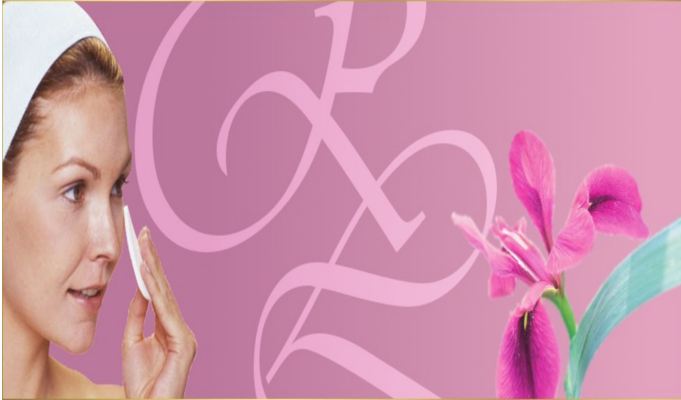
Spokesperson: Rekha Chaudhari, JCKRC Founding Partner, JCKRC SPA Destination
Philosophy of the brand: “Rémy Laure has a rich history and a well-setup research and development department. Originally founded in 1921 in the perfumery sector, the company changed its name in 1971 and launched the Rémy Laure professional skin care line. Manufacturing facilities were acquired in 1984 to cope with rapid expansion. Our laboratory is using the most advanced technology to develop new formulas and textures and adapt to the changing needs of our customers in 21 countries till date.”
Inspiration to distribute the brand: “Ancient India has been using a vast array of herbs, plant extracts and earth minerals for cosmetics and beauty treatments. Rémy Laure, as a brand, follows the philosophy of nature, and combines herbal and plant extracts with the goodness of earth minerals.”
USPs: “Since the launch of the ‘Black Mask’ in 1971, Rémy Laure has been bringing the benefit of Moortherapy, a beauty treatment with terrestrial mud, to beauticians worldwide. Rémy Laure associates this experience of natural beauty with an ongoing research for the best modern cosmetic ingredients, in order to propose efficient and authentic formulas.”
Competition from non-natural brands: “Our products are made from naturally derived ingredients with proven efficacy, as harsh chemicals increase irritation and sensitivity on the skin. We do not consider non-natural brands as our competitors.”
Consumer trends key for brand positioning: “We keep in mind the ever-changing trends of the cosmetic industry, the climatic conditions and physiology of Indian skin types, and take care to introduce products that are scientifically well researched and certified. With increasing changes in environment, our skin is forced to face high levels of pollution, sun damage, stress, ill health, and so on, which degenerate the health and beauty of our skin. We prefer to introduce those brands and products treatment which boost the cellular metabolism, improve moisture level and facilitate the rejection of toxins by providing the best balance.”
Marketing strategies: “We believe in ‘word of mouth’ publicity. Since the last seven years, we have been in the market and we have several loyal customers. We also advertise our brand in the
print media and have initiated the digital marketing of our spa on various social media platforms as well.”
Challenges faced: “The initial period of distribution was challenging as the Indian beauty industry was just introduced to a modernised approach to skin treatments with serums, active ingredients derived from nature in combination with earth derived minerals. Today with our team of educators, we have established a strong hold of the market and have well channelised distribution. Our result-oriented products are appreciated in the industry and we have carved a niche for ourselves.”
Future of natural and organic skin care products: “As clients are becoming aware of the side effects from non-natural products, there is a definite space for natural and organic products. People are wary of chemicals, additives and preservatives which are carcinogenic in nature and also a threat to the environment.”
View on Halal products in skin care: “India is a Hindu predominant country and sections of our society may not be comfortable with the idea of Halal products. Hence, we need to give this aspect of skin care some time.”
4. DISTRIBUTOR IN BUSINESS – Comfort Zone
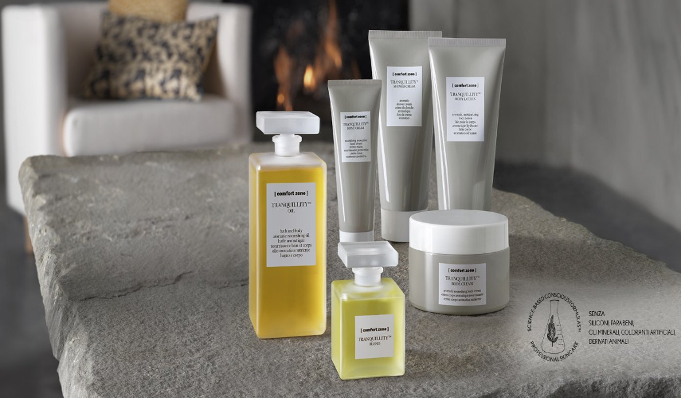
Spokesperson: Divya Kohli, Creative Director and Proprietor, Salon & Spa Studio by Tangy Roses.
Philosophy of the brand: “As a skin care brand, Comfort Zone is a marriage of nature with performance and sustainability, and this makes it stand apart. The sustainable processes used throughout the production and manufacturing of the products, the community efforts, and Comfort Zones’ B Corp Certification are all elements of our USP.”
Inspiration to distribute the brand: “India is a land of natural therapies and pleasurable experiences, but the audience was not getting a combination of great results and a pleasurable spa experience. Comfort Zone harnesses the power of natural ingredients, through sustainable and environment friendly approaches to provide potent and performant skin care products that give amazing and sustainable results. The Indian audience is craving for such products and treatments, where the result and the luxurious feel are at the forefront. I have yet to see a brand in the Indian market, which makes the customer shine from within and without.”
USPs: “Whenever you buy a Comfort Zone product, you can be sure it will provide great results and a great experience while giving you the inner feeling that you are doing something great for the people around you, the environment and yourself. The home care regime and in-spa experiences deliver incredible results, while offering the guests an unbelievable experience.”
Competition from non-natural products: “Comfort Zone does not fall behind non-natural brands as its offerings are not solely the nature of the ingredients. Comfort Zone prides itself in offering performant skin care products and in-spa treatment experiences. Non-natural brands have it harder in a way because they often try and offer similar results to the end-consumer, but their formulation philosophy has harsh chemicals, which can sometimes damage the skin in the long run. If you had the choice between natural-based products with a sustainable approach to beauty, or non-natural products that offer short-term and harsh consequential results, there is no doubt you would opt for the natural-based products which are safe, have great results and are therapeutic, as well.”
Market share captured: “We introduced Comfort Zone in 2015, it has gradually grown into a strong brand in the luxury skin care segment of salons, day and hotel spas. We have strong sales in the professional treatments as well as home care section of products. Comfort Zone is one of the leaders in the professional skin care platform, and incontestably the only one to offer a sustainable approach to beauty, while maintaining a synergy between a natural ingredient product base and highly performant skin care and treatments. In a span of 22 months, the products are available at more than 100 luxury skin care doors, and in the next 12 months, it will be there in a total of 180 luxury doors.”
Consumer trends key for brand positioning: “The Indian market is one of the fastest growing markets in the world. The ‘natural and ‘performance’ trend is there and expected to remain for quite some time. International brands have an interesting future in the Indian market, as long as they manage to maintain their core identity. It is easy and dangerous for brands to try to adapt to a level of losing their identity, as the Indian market has an infamous way of doing just that. Comfort Zone has a distinct identity and does not duplicate others, neither in products, treatments or in their strong ethical message for the world. The success of brands lies in maintaining their identity, customising their approach and being able to communicate boldly to capture and keep the attention of the Indian audience.”
Marketing strategies: “Our marketing strategy is and will always be to bring to market the most innovative, performant and sustainable beauty products and in-spa experiences. This strategy has been and will be reinforced over the next months. We intend to communicate our ‘Made In Italy’ message even more strongly, as it is synonymous with quality, beauty, sustainability and healthy lifestyle. Comfort Zone’s approach to beauty goes beyond the usage of skin care. An all encompassing lifestyle brand, it allows its user to reignite with the Joy of Beauty, through the home care regime, innovative inspa experiences or through our lifestyle tips for a more beautiful and healthy life.”
Challenges faced: “The Indian market requires different management and communication methods, but the main challenge is to remain consistent with it. The main concern for any company trying to enter this market is to lose itself. The market grows fast and without a strong and consistent brand message, it is easy to confuse the consumer and not stand out.”
Future of natural and organic skin care products: “The ‘natural’ message is here to stay. However, consumers are also looking at products that are offering sustainability and have proven performance records. This is where the future lies. Comfort Zone is at the forefront of this new segmentation of the industry, where savvy users understand the benefits of nature-inspired products that offer amazing end results. This fast-growing segment is seeking products that least impact and damage the environment and the community, as they are conscious and caring of their world.”
View on Halal products in skin care: “Halal products have clients all across the world. However, Comfort Zone has so many other great and positive messages that we are not focusing on Halal products, which we may in the future. Halal goes beyond ingredients and product-handling to include manufacturing, packaging, distribution, and logistics, which makes it a bit more challenging to enter. Nonetheless, we believe in offering healthy, nature-inspired products that offer maximum results and our science-based-conscious formulas is a reminder that Comfort Zone has a similar vision of Halal products, which is to respect people and the environment. Comfort Zone does not use animal derivatives and our packaging and manufacturing choices are guided by the principle of a proactive and sustainable approach, which is constantly in evolution and integrates the most advanced practices.”
5. MANUFACTURER IN BUSINESS – Anita’s Aromatics
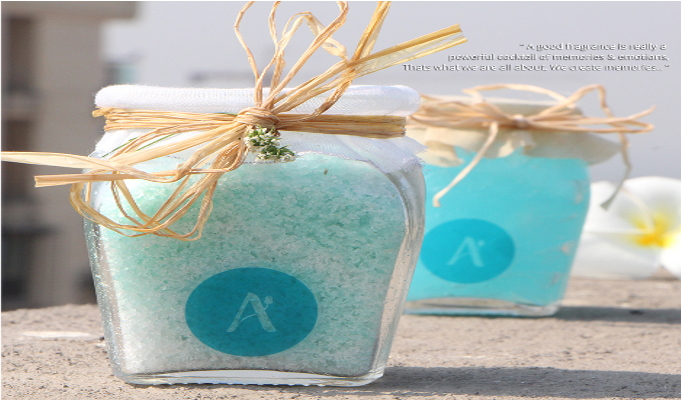
Spokesperson: Anita Golani, Founder, Anita’s Aromatics.
Philosophy of the brand: “Anita’s Aromatics is dedicated to supplying and manufacturing natural and ethical products using organic essential oils and botanical ingredients that are unadulterated to provide our clients holistic wellbeing experiences.”
Inspiration to manufacture the natural skin care brand: “With the growing awareness of the hazards that chemical induced skin care products can cause, consumers are becoming more interested in natural products. There are numerous brands that have herbal and natural products in their portfolios, and therefore, consumers are now able to take more control of the quality and safety of the products that they use.”
Ingredients client’s veer towards: “All actives derived from natural sources such as, plants, herbal extracts like licorice used for fairness, essential oils of lemon and orange for vitamin C, tea tree oil used for acne treatments, and milk proteins extracted from natural sources. The new ingredients in demand are activated charcoal, acai berry, and clay.”
Star products: “Candle kits, dead sea salt scrubs, brown sugar scrubs, charcoal and bamboo kit, rice and oatmeal scrubs, to name a few.”
Measures in place to meet the growing demand: “We have invested in automated machines to improve efficiency, and thus cut costs.”
Challenges faced: “Products with natural ingredients are susceptible to microbial attacks and face compatibility issues with other ingredients in various formulations. This creates challenges for manufacturers to stabilise the products to have a decent shelf life.”
View on Halal products in skin care: “Just as organic went from an unknown category to a beauty juggernaut, so can Halal, as more awareness and education about it grows. If the market demands are gearing towards Halal products, we will definitely delve into it.”
Future of natural and organic skin care: “While natural and plant-derived ingredients are on the rise, animal-derived ingredients are losing their popularity due to the growing negative attitude towards the production process of these products. Consumers are leaning towards products manufactured by eco-friendly, sustainable, ethical, and socially responsible brands, and products containing animal-derived ingredients fall into forbidden lists due to the ethical consolidations. As a result, consumption of lanolin and derivatives is expected to decline particularly in Europe and India.”
6. MANUFACTURER IN BUSINESS – Kairali Ayurvedic Products Pvt Ltd

Spokesperson: Gita Ramesh, Joint Managing Director, Kairali Ayurveda Group.
Philosophy of the brand: “The philosophy is to ‘Uphold the authentic principles of Ayurveda in order to propagate health and wellbeing worldwide’. Kairali Ayurvedic Group encourages a comprehensive approach to health, which understands the individual as a complex combination of elements capable of being brought into harmony. We are committed to enhancing positivity and wellbeing in individuals, the environment and the global community.”
Inspiration to manufacture the natural skin care brand: “We want to give consumers natural and Ayurvedic products. The load of chemicals on the skin has numerous side effects, which impact our body. Natural products have no side effects, and are accepted by our skin graciously. Our oils and powders are 100 per cent natural and Ayurvedic.”
Ingredients client’s veer towards: “There are various ingredients in the skin care range that are popular and are known for their pleasing affect such as, saffron, sandalwood, rose, lotus seed, turmeric, and others. Besides the main ingredient, we found that a combination of these ingredients have far greater results and are more in demand. Individual ingredients are good for a particular type, but with the combination the results are more promising.”
Star products: “Kaircin is one of our best-selling products. It has saffron and lotus seed extract, which help in moisturizing the skin and making it supple. Its regular application is known to reduce pimples, acne, dark spots, and even wrinkles.”
Volume of production in a month: “We have a massive manufacturing unit which produces 2,000 litres of oil, 500 kgs of churnam, three lakh capsules, 1,000 litres of cosmetics and 500 kgs of soap.”
Measures in place to meet the growing demand: “We are seeing that the demand for natural and Ayurvedic products is surging and we keep a close eye on the growth figures. We will increase our manufacturing accordingly. We focus on procuring raw materials, such as herbs, fruits and extracts. We cultivate them and keep a tab on the harvest to fulfill the demand of the consumers.”
Challenges faced: “The only challenge we face is in the availability of duplicate products in the market. They have chemicals and are not even close to be called natural or Ayurvedic. They cause various skin conditions and are extremely harmful. We always recommend the consumer to know about the brand and their product before using it.”
View on Halal products: “‘Halal’ products can be defined as products created by killing an animal. We have never encouraged such product use that has been made by killing an innocent creature.”
Future of natural and organic skin care: “We have reached in an era where people have started accepting the Ayurvedic and natural products. They now understand the significance of the being natural. Today, consumers are conscious of what they use on their skin and do not wish to experiment with chemical-ridden products. We found it to be a positive indication, and the future looks promising.”
7. SPA SPEAK – Imperial Salon and Spa
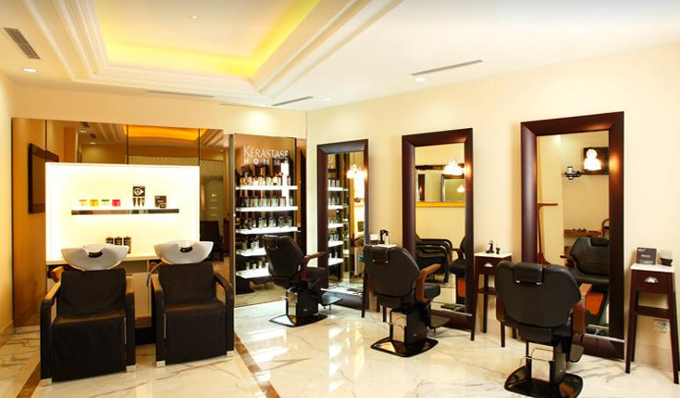
Spokesperson: J Tara Herron, Spa Director at Imperial Spa & Salon, Imperial Hotel, Delhi.
Brands used: “We use our own collection of organic and botanically sourced and blended oils and skin care brand called Sufi. I created this brand when we first launched the Imperial Spa to support our signature treatments.”
Other non-organic brands used: “Our other treatment led skin care brand for the face and body is Natura Bisse, which is a premium high performance brand from Spain. Some of the ingredients are organic and botanical, but blended with cosmeceuticals for dynamic anti-ageing and restorative results.”
Ingredients client’s veer towards: “People have different views on product ingredients depending on their knowledge, orientation and experience. Those with sensitive skin, for example, will want to know that the products we use are sensitively blended to a professional standard. Some people want deeply enriching products that give immediate visible and textural results, so we need to use a more refined and sophisticated ingredient palette. Others are inspired by purity and ingredients that are organic in origin which fits into their lifestyle philosophy. Only about 5 per cent of clients ask for natural products, and most will trust that we are providing them with a procured brand that has safe and holistic ingredients that does not create toxicity or allergies.”
Best selling therapy: “The Imperial Depth, our signature massage, appeals to our multi-cultural and international client base. The techniques drawn from Eastern and Western disciplines, can be personalised to treat the individual’s requirement at the same time.”
Challenges faced in sourcing natural ingredients: “The word ‘natural’ can be quite misleading as some products will have maybe 20 per cent naturally ‘sourced’ ingredients blended with more refined ingredients and are still considered ‘natural’.
Natural may also mean that you blend the products yourself from raw ingredients such as, nut butters, oils, salts, fruits, clays, resins and extracts of roots or that the pre-blended product does not contain any manufactured ingredient, alcohol, petroleum or harmful preservative. In the end, I look at a range of product concepts, learn about their integrity of sourcing and blending, and try them out to see what will ideally suit our spa and guests. Also working in India means products do require some level of active preservatives, though natural and free of parabens, as infection and decay can happen quickly, if not taken care of in the right condition.”
Therapist training on product knowledge: “Yes, the therapists receive product knowledge on the key ingredients, their benefits, contra-indications, and other applications. They are trained to read and understand our in-house Wellness Consultation that every guest completes, so that the correct choice of product can be advised, often with opinions and further recommendations.”
Future of natural and organic skin care: “Of course, the demand will grow as more people seek to de-tox and purify their lives. Knowledge of harmful ingredients informs people that they need to look for alternatives and many brands that were not previously organic, have now created new lines that are much more naturally sourced to fulfill these need gaps. As more and more research comes to light to reveal the hidden dangers in using certain ingredients, the organic product market will grow and evolve just in the same way as organic food manufacturing has taken off.”



